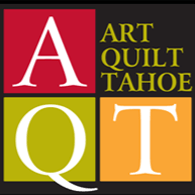Instructor: Sue Benner
The supply list has been provided by the instructor. If you have any questions, please contact the instructor at benner.sue@gmail.com
Supplies Participants Should Bring
INSPIRATIONAL IMAGES or source materials for your work in class—photographs (especially closeups/details), sketches, sketchbook doodles, designs, magazine pages, etc. Concentrate on shape, pattern, repetition, and movement. Sue will have source material handy if you don’t know what to bring.
ABSTRACT ART/ARTIST INFLUENCE–a reproduction of at least one abstract image (or book) of an artist’s work that give ideas for layering or layered structure. I ask that you look outside the quilt medium for this.
FABRIC! Almost anything goes:
- Fiber content: cotton, polyester, rayon, silk, wool, etc.
- Recycled garments: 5 whole or partial garments to cut up or that are already disassembled.
- Recycled household linens: especially ones that are no longer useable due to stains or holes.
- Beautiful and “precious” hand-dyed/printed fabrics that you haven’t been able to use.
- Sheers like chiffon and organza—curtains, anyone?
- Another 5 garments to put in a class stash for anyone to use.
- Any other fabrics you want to bring.
- Scraps/leftovers you think are intriguing and have been hoping to use sometime, fused or not.
- Don’t sweat the fabric choice too much. We can work with almost anything! Really!
- 2-3 yards of backing fabric.
Pre-washing is not required but highly recommended. I wash all my fabric except my weirdest stuff, including and importantly, the recycled clothing.
FUSIBLE- Any of the following will be fine:
- 15 yards of 805 Pellon Wonder-Under or
- 15 yards of MistyFuse or
- 15 yards of Steam-a-Seam 2 Lite or
- Equivalent of Soft Fuse or
- Equivalent of SpunFab (www.museumservices.com)
GLUE- your favorite fabric glue or glue stick
Release Paper/Surface
- Roll of parchment paper (Reynolds white smart-grid the best)
- Teflon baking sheets or Goddess Sheet (MistyFuse)
Pins
- Straight pins (a pin cushion-full)
- Quilting safety pins (about 20 OK)
Batting and Ironing Surface
- Twin-size 72×93” or equivalent in pieces, 100% cotton if possible, like Quilters Dream Cotton
- White cotton fabric, 1 yard, to make ironing surface on a table with part of the batting above Art Supplies
Art Supplies
- one or two soft-lead pencils (2HB Ticonderoga good, my favorite)
- two soft-lead, colored pencils (like Prismacolor), or your best approximation of these pencils
- 10 sheets letter size paper, a few sheets tracing paper
- thick and thin Sharpie
- masking tape
- 3 assorted paint brushes (e.g., 2, 1, and .5 inch wide)
Iron
- Steam iron
- Tacking or sealing iron (optional, only if you have one already)
Cutting Tools
- sharp scissors (small and large)
- cutting mat
- rotary cutter (a large and very small, 18-mm, would be ideal)
- gridded ruler (24” x 6” or larger is good)
- gridded square (6 1⁄2” or larger)
Sewing Machine–capable of straight stitch, zigzag, and free-motion stitching plus about 10 colors thread
Hand Stitching (optional)
- embroidery thread or pearl cotton
- suitable needles and thimble
Digital Camera (your phone is probably fine for this)
Press Cloth (optional) of 100% cotton, low lint fabric like Pima cotton is best.
Example of your artwork to show to the class (optional).
IF NOT SUPPLIED BY TEACHING VENUE: extension cord, surge protector/power strip, design wall, additional lighting or lamp
SUPPLIES I WILL HAVE ON HAND
- Pile of recycled and thrifted fabric scraps.
- Other fabrics and surfaces to work on
- Paint and palettes
- Paint brushes
- Tools
Please email or call (benner.sue@gmail.com or 214-796-8089) if you have any questions about the supply list!
After reading this list you may ask yourself, what is the least I can bring and get away with it?
Answer:
Fabric (see list)
Iron
Scissors
Pins
Glue stick
Fusible
Parchment paper roll
Hand sewing supplies and thread
Phone/Camera
Masking tape
Paint brushes
Batting
Just don’t ask your neighbor to make up the difference! 🙂
